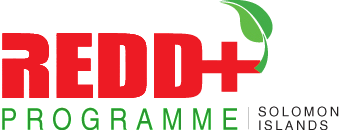Dispute resolution framework
Most disputes are dealt with informally at the village level, either by local chiefs or leaders, or in some cases, the church.
Under the formal legal framework, disputes over customary land in Solomon Islands must first be referred to the local chiefs, who will determine the dispute according to kastom. If the matter is not resolved using “traditional means”, the matter can be appealed to the local court (Local Courts Act [Cap. 19], s. 12(1)), which can hear all civil matters “affecting or arising in connection with customary land” (Land and Titles Act, s. 254). The most common grounds for appeal are allegations that the local leaders and chiefs were biased. Appeals from local courts in relation to land disputes are made to the Customary Land Appeal Court. A further avenue of appeal lies to the High Court on matters of law, but not custom.
The forestry legislation has, however, created a conflicting legal regime for determining which tribe or clan has the right to grant timber rights, and who are their authorised representatives. Under the Forest Resources and Timber Utilisation Act, these issues are determined by the Customary Land Appeal Court rather than the Local Court.
Observations
Disputes over ‘ownership’ of customary land and the exploitation of natural resources such as timber are a very common in Solomon Islands. A recent report by the World Bank into the main sources of grievance in Solomon Islands found that disputes over land and development-related issues are the second most common cause of disputes affecting rural communities (with the first being anti-social behaviour stemming from substance abuse) (Allen et al, 2013). The Report also found that most existing dispute resolution mechanisms in Solomon Islands, whether customary or state-based, are struggling to deal effectively with disputes over land and natural resource, particularly where logging is involved.
While the traditional kastom system, the first port of call to resolve land and other disputes, is generally regarded as a having a legitimate mandate to resolve disputes, it is increasingly fragile and in some places appears to have broken down altogether, particularly if the chiefs and local leaders have themselves become entangled in logging operations. Nor is the formal justice system functioning well. Due to decades of government neglect and lack of funding since the mid- 1990’s, both the Local Courts and the Customary Land Appeal Courts have now almost virtually ceased to function. The Local Courts, which are supposed to deal with civil and criminal cases, are overwhelmed with the volume of customary land disputes and currently have a backlog of 350-400 land dispute cases (Allen et al, 2013: 47). The combined failure of traditional processes and the formal justice system is leaving affected citizens without remedy for grievances. In response to these problems, the Ministry of Justice and Legal Affairs has recently draft legislation, the Tribal Dispute Resolution Panels Bill 2012, to replace the current system of dispute resolution over tribal customary land (Solomon Islands Law Reform Commission 2012:59).
Since the period of civil conflict known as the “tensions” ended in 2003, a multilateral effort delivered by the Regional Assistance Mission to Solomon Islands (RAMSI) has worked to strengthen and the court system and improve access to justice in an effort to restore law and order (RAMSI 2009). However, on the ground, these efforts have largely focussed on supporting higher level courts in the capital, Honiara, and there has been little support for local level courts. Significant effort is still required to ensure that effective grievance and redress mechanisms are in place at the community and local levels in order to create an effective grievance procedure and dispute resolution mechanism for a national REDD+ programme.
Safeguards
Solomon Islands is still in the process of selecting and developing its nationally-appropriate safeguards for REDD+. With assistance from the UN-REDD Programme, the country has prepared Guidelines on the Development of REDD+ Safeguards within the Solomon Islands National REDD+ Process (draft for discussion, February 2014).

